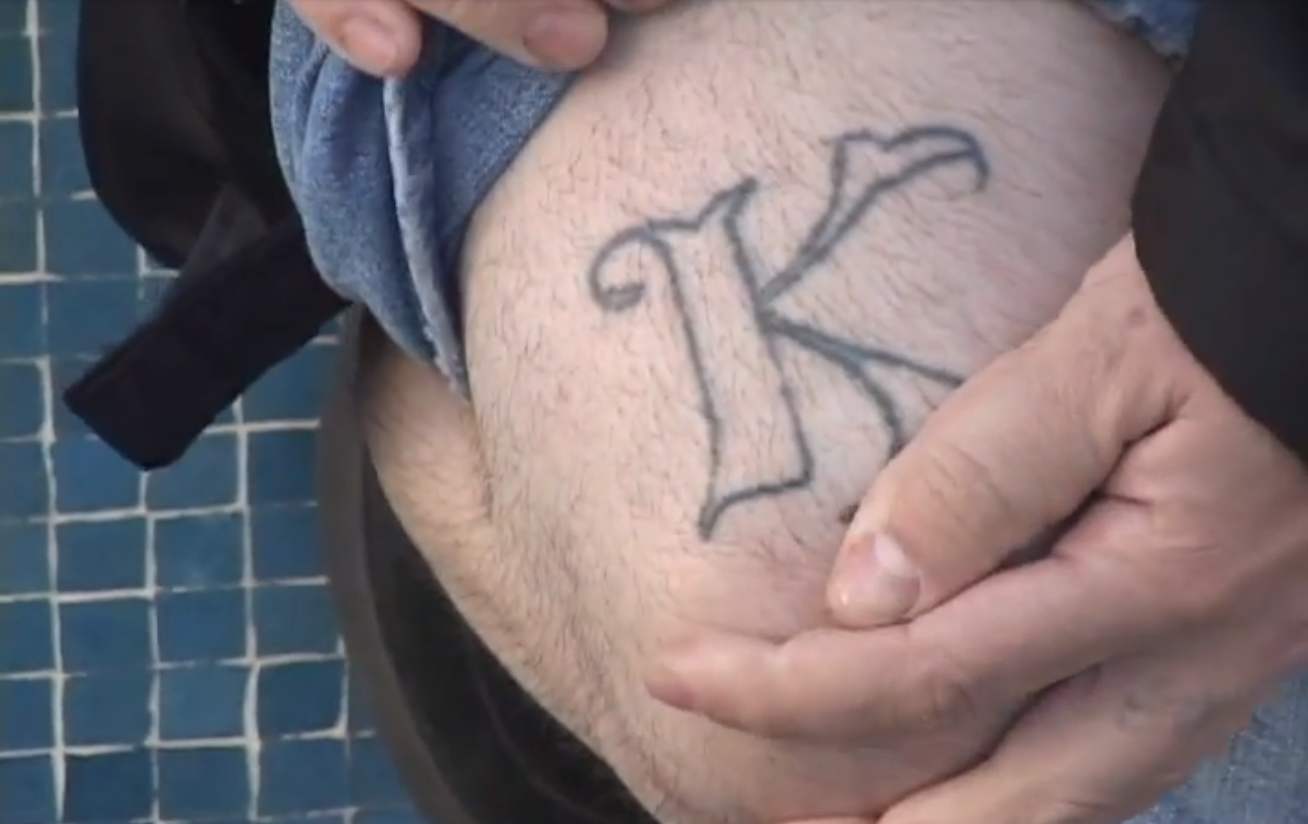
The unapologetic documentary Homeboy is a film that shows—unabashedly, in your face—how love and identity are simultaneously forms of struggle and freedom, even when one’s home lies in the underbelly of the Southland’s gang culture.
Its style—straight-forward, one-on-one confessions of Latino men—is part of what is so captivating about it: aside from the array of beautifully erotic images courtesy of black-and-white artist Hector Silva (pictured below) to break up the three chapters, the viewer is not able to deviate from the subjects. There is no b-roll footage or pans or voiceovers. The viewer has to, just as director Dino Dinco did, sit with these men and hear their stories.
And not a single story exudes poor-ol’-me more than this-is-who-I-am. These men hold no apologies for their lives and though some things are horrifying—one of the most charismatic and affable of men in the film, Cisco Rios, casually describes stabbing someone as the sensation of sliding something through clay—what ultimately comes through is that gang membership isn’t as crazy as it is human. These men, much like the feeling I held when being taunted as a kid growing up in the mountains, just want someone to care about them.
They were—and still are when one looks in their eyes—searching for a family and love.
 Juan Verdi explained it succinctly: “Gangbanging… It comes from dysfunctional families. My mother and father didn’t have enough time to spend with me so I found someone who did… And I learned to love them just as much as I love my Mom and Dad.”
Juan Verdi explained it succinctly: “Gangbanging… It comes from dysfunctional families. My mother and father didn’t have enough time to spend with me so I found someone who did… And I learned to love them just as much as I love my Mom and Dad.”
For Philip Garcia, though there were drugs and violence, it wasn’t the epicenter of their doings or his participation.
“It was a buncha outsiders knit as one,” he said, his expression showing the relief anyone on the margins has when they have found a home.
This is not to say that the views of life expressed in the film are not distorted or skewed or even in some cases, enlightening on a disturbing level.
Robert Jaramillo, with a calm demeanor, describes being a kid as before the time he was formally introduced to freebasing cocaine at 12; for Robert, being 12 was his passage into adulthood. Even more, there is a dark irony to his perception given the infamous 13—that many of the men had tattooed on them—is the symbol par none for Hispanic gang members throughout the Los Angeles region as well as the age Robert was approaching next.
Philip provided the frank reality of down-low culture when he said his first experience with a man “wasn’t gay.” For Philip (and all of the men in the film), being gay held a very specific connotation: flamboyancy, effeminacy and privilege. So in Garcia’s eyes—hooking up with a man who eschewed every single one of those ideals—he initially wasn’t doing anything “gay.”
 These facinating points highlight their struggle as disturbingly two-fold: In a culture, as gang expert Luis Rodriguez points out, that can’t even teach straight men how to approach their sexuality with respect, what is a gay man to do in the same culture?
These facinating points highlight their struggle as disturbingly two-fold: In a culture, as gang expert Luis Rodriguez points out, that can’t even teach straight men how to approach their sexuality with respect, what is a gay man to do in the same culture?
And presenting them so strongly outspoken—in their talks of sex, being a member, of childhood—shows not just an intimate look at what is, for most, a frightening subculture of the L.A. area. More impressively, it shows off a side of our community that is often dismissed (yet sexualized and commodified through thug porn sites like BiLatinMen.com) since gang culture is outspokenly homophobic. The stereotypes of the images that have proliferated since the 90s in showcasing gay men—loud, bitchy, and almost exclusively white—is ultimately shot down with Homeboy.
Instead, we are shown a slew of gay men that are never talked about and most certainly not provided a sitcom. Men who firmly believe in their definition of inherent masculinity and who just as firmly adhere to the life they were born into. And even more, men who show us just how human we all are with the fact that—even if surrounded by perpetual violence or marginalization—love always exists.
Homeboy will be playing at this year’s QFilms Festival on Sunday, September 8 at 1PM at the Art Theatre, located at 2025 E. 4th. Director Dino Dinco will be on hand after to partake in a Q&A session with the audience.
Read more:

